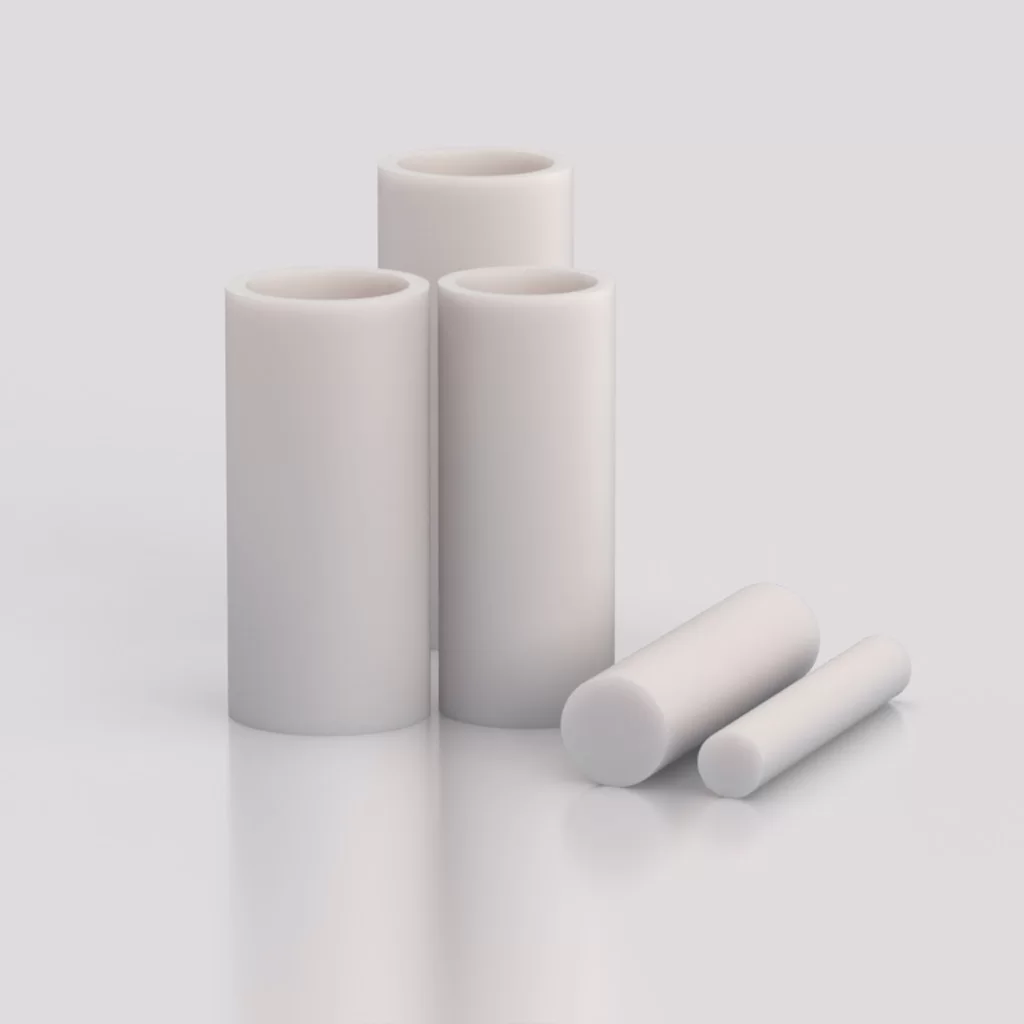PB24000 SERIES
ETFE
Ethylene TetraFluoroEthylenes (ETFEs) are copolymers of ethylene and tetrafluoroethylene and are melt-processible. The presence of hydrogen atoms in the structure makes ETFE resins harder polymers than their perfluorpolymers counterpart; however, they are chemically less resistant and less thermally stable.
ETFE resins exhibit excellent resistance to radiation. ETFE may be susceptible to oxidizers, esters, ketones, and chlorinated solvents but resists organic solvents, acids, and alkalis. PB24000 resins meet the requirement of ASTM D3159.
PBY Material Codes:
PB24002F - ETFE
ETFE Spec. Summary
| Property | Test Method | Units | ETFE T1 G1 |
|---|---|---|---|
| Color | - | - | White |
| Specific Gravity | ASTM D792 | - | 1.690 - 1.760 |
| Hardness Shore D | ASTM D2240 | - | 65 - 75 |
| Tensile Strength, min. | ASTM D3159 | PSI [MPa] | 5,500 [37.9] |
| Elongation at Break, min. | ASTM D3159 | % | 275 |
| Service Temperature High | - | °F [°C] | 311 [155] |
| Service Temperature Low | - | °F [°C] | -300 [-185] |
| Second Melt Peak Temp. | ASTM D3418 | °F [°C] | 512 [267] |
| Glass Transition Temp. | ASTM D3418 | °F [°C] | 266 [130] |
Material Available In:
ETFE Rods
ETFE Tubes
ETFE Sheets
ETFE Material Properties:
-
Chemically inert to a wide range of solvents and industrial chemicals
-
Exceptional dielectric insulation properties
-
Good abrasion resistance, rugged, and impact strength
-
Weldable
-
High outdoor weathering resistance
-
Heat sterilization resistant
-
Radiation resistant
Typical Applications for ETFE Plastics
-
Pipe Linings and Pump Housings
-
Abrasive slurry impellers
-
Chemical Processing and fluid handling equipment.
-
Wet bench equipment
-
Oxygen respirator components
-
Mil, Defense Equipment
-
Food processing equipment
-
Radomes
ETFE Requirements
This product meets ASTM D3159 Type I Grade 1 requirements.
ETFE Spec. Compliance

References
- Wypych, George. Handbook of Polymers. 2nd Ed., ChemTec/Publishing, 2016.
- Ebnesjjad, Sina. Fluoroplastics Vol1 & Vol2. 2nd Ed., Elsevier Inc., 2015.
- Aerospace Materials Specifications for PTFE materials (AMS3678)
- American Society for Testing and Materials (ASTM) Standards

